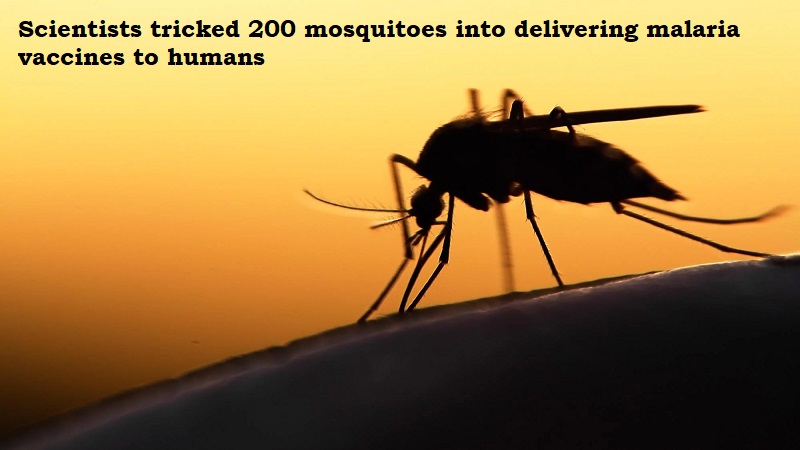
One of the deadliest insects has been transformed by scientists into a malaria vaccine delivery system.
A modest clinical experiment with 26 participants has reportedly been going on in the United Kingdom to develop a mechanism to employ mosquitoes to deliver vaccines, according to recent reports from NPR (National Public Radio, US). Science Translational Medicine has published the trial’s findings.
NPR shared the story of one of the volunteers, Carolina Reid, who placed her arm over a cardboard box containing 200 mosquitoes and covered in mesh, which keeps the insects within but still allows them to bite.
The scientist then draped a dark cloth over her arm because nighttime is when mosquitoes like to bite. Reid claims, ‘My entire forearm swelled and blistered.’
In order to administer malaria vaccines through mosquito bites, scientists were able to genetically manipulate parasites.
Dr. Sean Murphy, a physician and scientist at the University of Washington in Seattle and the paper’s primary author, explains that they treat mosquitoes like 1,000 little flying syringes.
The parasitic insects transmit live Plasmodium parasites that cause malaria but are genetically altered to not infect humans.
This is the first time CRISPR (Clustered Regularly Interspaced Short Palindromic Repeats) has been employed to carry out a comparable task that scientists have attempted in the past.
The trial showed that the modified parasites protected some participants from a malaria infection for a few months. The biggest problem with using mosquitoes to deliver vaccines is the effectiveness. According to the results, 14 of 26 participants who were exposed to malaria contracted the illness. That means the mosquito vaccine delivery system is only around 50 percent effective.

Post Your Comments